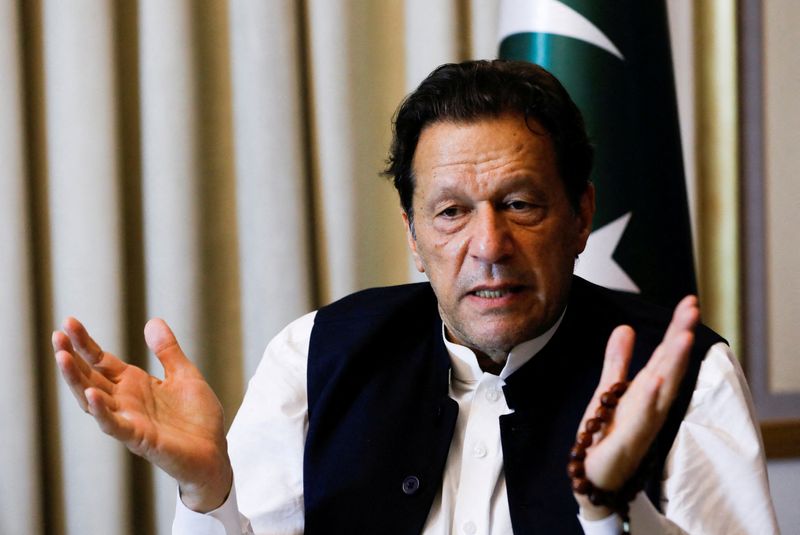By Kanishka Singh
WASHINGTON (Reuters) - Senior U.S. diplomat Victoria Nuland spoke on Tuesday with Pakistani Foreign Minister Jalil Abbas Jilani and discussed the importance of "timely, free and fair elections" in the South Asian nation, the U.S. State Department said.
"Acting Deputy Secretary Nuland and Foreign Minister Jilani discussed the importance of timely, free and fair elections in a manner consistent with Pakistan's laws and constitution," the U.S. State Department said in a statement.
Pakistani politics has been in a crisis for over a year, with former Prime Minister Imran Khan - who was ousted in a parliamentary vote of no confidence last year - being at the center of it.
Khan blamed the United States and Pakistan's military for his ousting. Both Washington and the military have denied his claims. The State Department statement on the call between Nuland and Jilani made no mention of Khan.
A Pakistani high court on Tuesday suspended the jailed former prime minister's sentence on corruption charges, but he will remain behind bars as a judge had already ordered his detention in another case. The conviction of Khan, who remains Pakistan's most popular leader according to opinion polls, has also barred him from contesting elections for five years.
Pakistan swore in a caretaker cabinet under interim Prime Minister Anwaar-ul-Haq Kakar in mid-August, tasking it with running the country until fresh elections, which may be delayed beyond November as constituency boundaries are redrawn.
The caretaker cabinet's top job will be to lead Pakistan towards economic stabilization, with the $350 billion economy treading a narrow recovery path after getting a last-minute $3 billion bailout deal from the International Monetary Fund (IMF), averting a sovereign debt default.
The election commission earlier this month said new constituencies based on the latest census would be finalized by Dec. 14. After that, the commission will confirm an election date.

Political analysts said that if the caretaker set-up stretches beyond its constitutional tenure, a prolonged period without an elected government would allow the military, which has ruled directly for more than three decades of the country's 76-year existence, to consolidate control.
Nuland and Jilani also discussed Pakistan's economic stability and continued engagement with the IMF, the State Department said.